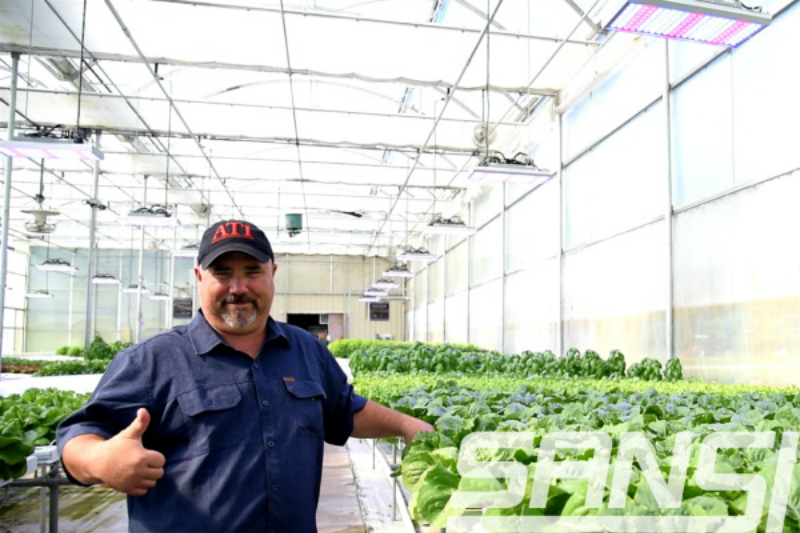
Tyler, who owns a personal farm in Cleveland, Ohio, has engaged in crop cultivation for more than 5 years. Graduated from a well known agricultural college, Tyler has professional knowledge and experiences towards planting crops. However the annoyed weather in Ohio has bothered him for a long time, the winter in Cleveland begins approximately in October and continues till April. The drastically reduced sunlight in winter slows down the growth of vegetables, thereby affecting the overall yield.
Based on the geographic location, greenhouse size, crop species and the structure of the farm, SANSI issued a professional LED supplement light solution to solve Tyler's puzzle.

In such a long winter climate, how to keep plants in light for a long time is a serious problem for Tyler, so there is a high requirement for the sustainability and stability of the growth lights. Sansi utilizes the unique COC (Chip on Ceramic) technology to directly attach the LED chips to the ceramic heat sink without PCB structure, which improves the heat dissipation efficiency of the lights, thereby improving the overall lighting stability and lifespan. Instead of traditional fans and water cooling systems, Sansi LED growth lights uses passive heat dissipation, which results in a lower consumption and a higher sustainability, making the whole lighting system works stably during the long winter.
In artificial light environment, how to ensure the yield and quality of crops is also a significant problem to discuss. The growth of plants has the characteristic of phototropism. Generally, the stems of the plants bend toward the light, the uniformity of light (regional uniformity, inter-plant uniformity and crown uniformity) determines the appearance and consistency of the plant. Therefore, for the light environment design, it is necessary to ensure the uniform distribution of light intensity and light quality. Sansi LED growth light seals chips of different colors on the same ceramic pixel, and then matches the independently developed optical lens for light distribution, so that the light intensity in the center area is basically equal to the edge area, thus ensuring the uniformity of light and the high yield of plants.
For professional growers like Tyler, the growth lights need to be suitable for the growth of multiple crops at the same time. So far it has been confirmed that the wavelength range of light radiation required for plant growth has been extended to 280-800nm. Red light in the 600-700nm band and blue light in the 400-500nm band are the main light sources that drive photosynthesis. The ratio of red and blue light required by different plant species is also different. The spectrum and light intensity of Sansi LED plant growth lights are adjustable to adapt to the needs of different plant growth cycles, seasonal changes in sunlight, and even daily natural light intensity changes.

Tyler uses Sansi LED growth lights for 13 hours a day in winter, and 4-6 hours in spring and autumn. After more than a year, the overall yield of the leafy vegetables he planted has increased by about 30%, and the overall quality has also improved.